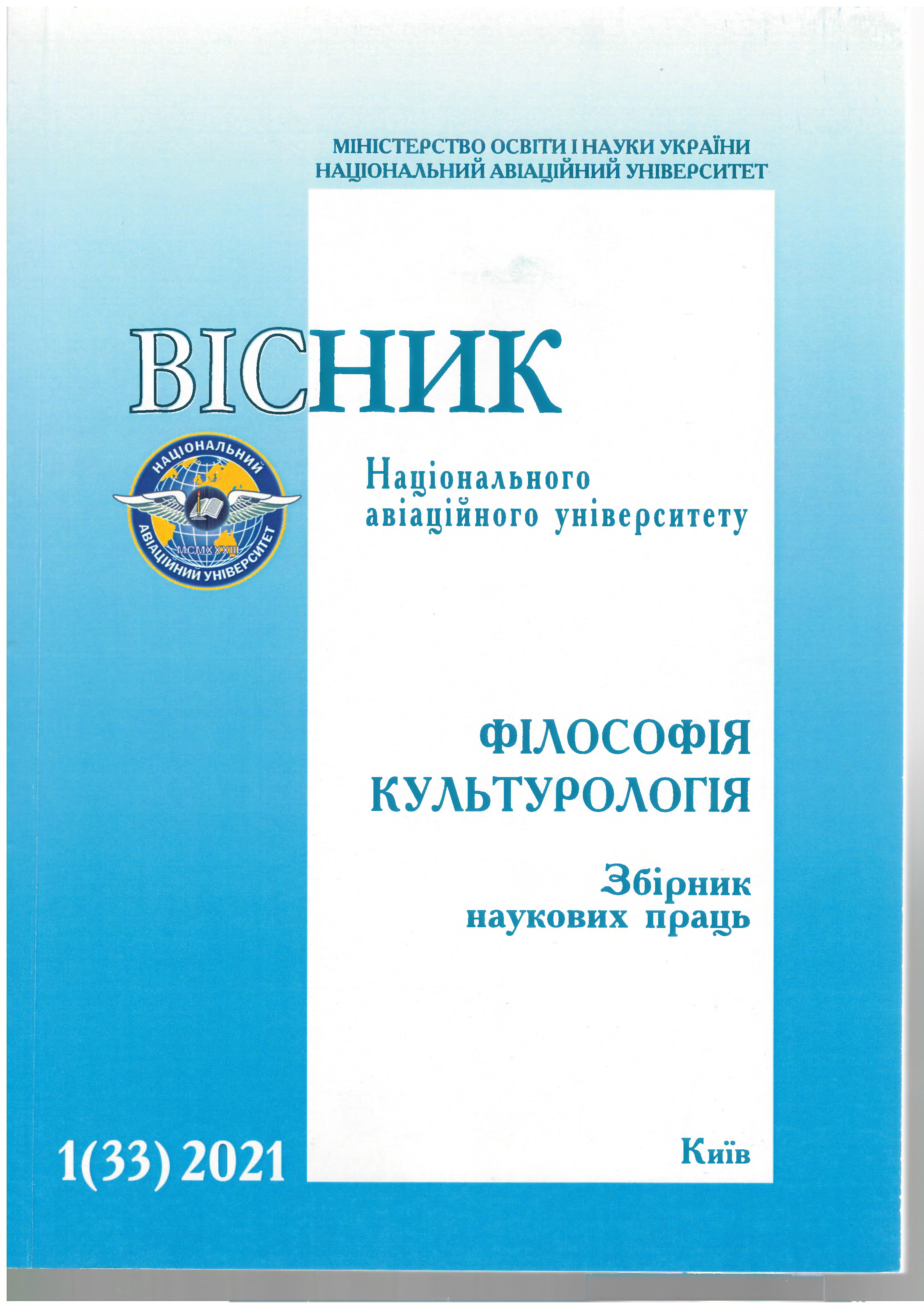INFORMATIZATION OF EDUCATION IN THE CONTEXT OF GLOBALIZATION OF SOCIETY AS AN OBJECT OF SOCIOPHILOSOPHICAL ANALYSIS
DOI:
https://doi.org/10.18372/2412-2157.33.15642Keywords:
nformatization, education, social institute, globalization, computerization, information and communication technologies, information societyAbstract
Introduction. The globalization and informatization processes, which focus on universalization, standardization, unification, integration, effect various spheres of human life in the modern world. In particular, the transformation of national educational systems causes changes in the system and functioning of education as a social institution. Informatization in the context of globalization involves appropriate changes in the education system, in its goals, content, forms, methods, as well as it gives new opportunities and prospects for participants of the educational process. The aim and tasks are a socio-philosophical analysis of the informatization process of education in terms of the development of a globalized society. Research methodology. The main methodological tools for studying the features of informatization of education in terms of development of a globalized society were socio-cultural and systemic approaches in their dialectical unity, as well as structural and functional methods, the principles of interconnection and unity of historical and logical. Research results. Various aspects of the research of the social institute of education have been studied in scientific works of well-known foreign and domestic scientists (J. Allak, V. Andrushchenko, R. Akoff,
Z. Bzhezinski, Y. Bortsov, I. Gavrilenko, B. Gershunsky, V. Dimitrenko, E. Durkheim, G. Zborovsky, S. Kolesnikov, V. Kremen, F. Coombs, V. Lisovsky, M. Lukashevich, V. Ognevyuk, T. Parsons, M. Rutkevich, B. Simon, N. Smelzer, J. Toshchenko, V. Turchenko, V. Shubkin, O. Homeriki and others. Fundamental theoretical developments in the field of research of informatization and globalization of society are presented in the works of prominent representatives of the scientific thought, including D. Bell, Z. Bzhezinski, I. Wallerstein, J. Wiener, J. Habermas, E. Giddens, P. Drucker, V. Inozemtsev, M. Castells, N. Luhmann, M. McLuhan, D. Martin, J. Masuda, G. Molitor, E. Toffler, A. Touren, F. Webster, F. Fukuyama, S. Huntington and others. Representatives of domestic scientific thought who have made a significant contribution to the study of informatization of society are V. Lyakh, J. Lyubivy, O. Sobol, V. Pazenok, L. Drotianko, V. Onoprienko, N. Chenbai and others. The scientific research of L. Orokhovska, T. Pody, O. Sidorkina, N. Sukhova, T. Shorina and others is devoted to the phenomenon of globalization in the Ukrainian social and philosophical thought. Discussion. Experts connect the processes of informatization of education in terms of development of modern society with socio-pedagogical transformations with the use of information and communication technologies in the education system, the introduction of computers, multimedia and information tools in educational institutions, etc. The implementation and use of the computer, information, and communication technologies in the educational process have a number of advantages and opportunities:
contribute to the renewal of the content of education within the development of educational and methodical materials; increase the level of efficiency in achieving by students the established requirements for the quality of education; reduce the time spent by participants of the educational process in individual, scientific, methodological, and other types of work, as well as the search for the necessary information; promote the implementation of various forms of learning (individual, collective, independent, distant, network, etc.); allow using software of information and communication technologies, as well as multimedia technologies as a didactic means of training; etc. Informatization of education is a complex socio-cultural, socio-technical, and socio-historical process, established on the increasing technological base, the spread of information and communication technologies, computerization, and internetization, which, in turn, involves the development and dissemination of new information culture in society. The process of informatization of education in the globalized world is an important institutional factor that causes structural and functional changes in the socio-cultural practice of public life. The possibilities of modern information and communication technologies allow implementing the idea of universal and equal access to education on a practical level, as well as contribute to increasing the level of educational mobility, forming an inclusive society and adapting education systems of different countries to
the realities and needs of the information society. Conclusions. The processes of globalization and informatization taking place in modern society are important factors that effect the education system, its functioning and development as an important social institution. The rapid pace of development of information and communication technologies, the processes of internetization and digitalization lead to the formation of an appropriate information society, in which information is the leading production resource in the process of globalization of education. In such conditions, the informatization of the modern educational process at all its levels requires from each participant high-quality and systematic development of information culture, computer literacy, competence, etc.
References
Гриценко В. И. Высшее образование в информационную
эпоху: вызовы глобализации / В. И. Гриценко // Управляющие
системы и машины. – 2010. – № 2. – С. 6-9. – Режим доступа:
URL: http://dspace.nbuv.gov.ua /bitstream/handle/123456789/ 82802/
-Gritsenko.pdf? sequence=1
Дротянко Л. Г. Інтенсифікація глобалізаційних процесів в
інформаційну еру / Л. Г. Дротянко // Вісник Національного авіа-
ційного університету. Серія: Філософія. Культурологія: Збірник
наукових праць. – Вип. 1 (27). – К.: НАУ, 2018. – С. 9-13.
Литовченко І. В. Особливості функціонування соціально-
го інституту освіти в інформаційному суспільстві: соціально-
філософський аналіз / І. В. Литовченко // Грані. - 2016. – № 2.
– С. 121-125.
Митрофанов Д. В. Педагогические возможности инфор-
мационных технологий в формировании интеллектуальной
культуры студентов / Д. В. Митрофанов // Гаудеамус. – 2018 –
№1. – С. 25-36. – URL: https://cyberleninka.ru/article/n/
pedagogicheskie-vozmozhnosti-informatsionnyh-tehnologiy-vformirovanii-
intellektualnoy -kultury-studentov.
Юнусова Г. Р. Информатизация образования как ос-
нова развития информационно-компьютерной культуры сту-
дентов / Г. Р. Юнусова // Современные проблемы науки и
образования. – 2015. – № 1-1. – Режим доступа: URL:


